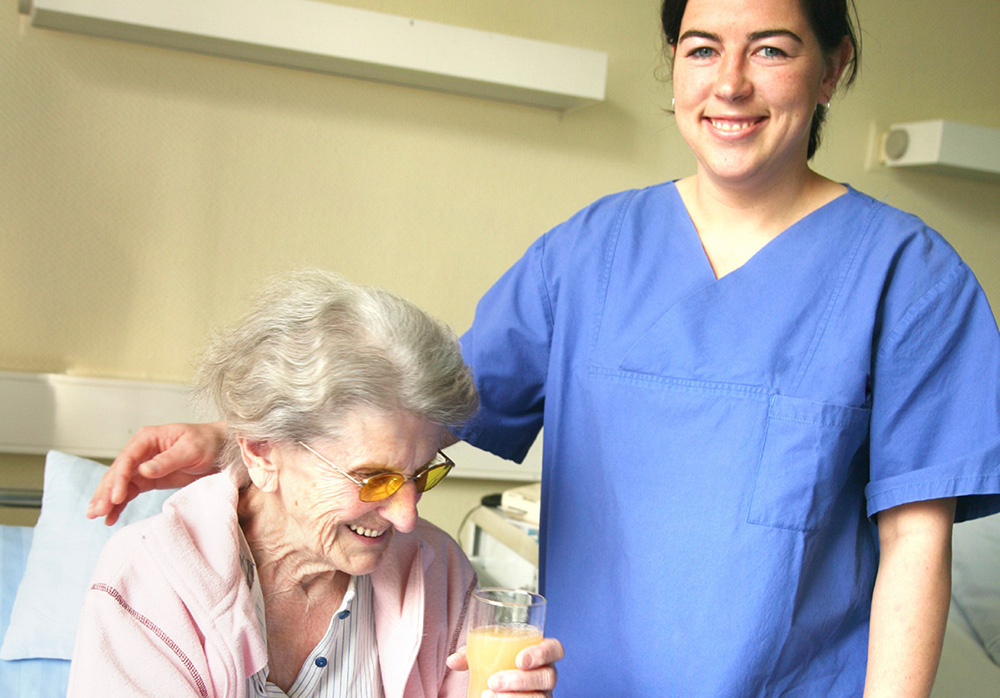I am a Service Provider
I am a Service Provider
National Palliative Care Service Directory

As palliative care service providers, your services are critical in providing the care and support that people with a life-limiting illness need. To ensure that people living with a life-limiting illness and their families and carers can find you and learn about the services you offer, it is important that your details are recorded on the National Palliative Care Services Directory. If you would like to contact someone about the National Palliative Care Services Directory, please email servicedirectory@palliativecare.org.au
The Palliative Care Service Development Guidelines
Palliative Care Australia (PCA) has produced the Palliative Care Service Development Guidelines
The purpose of the Guidelines is to communicate the expectations of PCA for:
The range of palliative care services that should be available to people living with a life-limiting illness, their families and carers; and
The workforce and system capabilities required to deliver an effective network of palliative care services using a population-based and geographic approach to service planning.
The primary audience for these Guidelines are:
- State and territory governments who have responsibility for planning and organising their provision of publicly funded palliative care services;
- Private health insurers who pay for palliative care services for privately insured patients, with these services being delivered by private or public providers;
- Directors of specialist palliative care services; and
- Other health professionals involved in providing palliative care in all service settings.
As a service provider, it is recommended that you review the Palliative Care Service Development Guidelines to assist in planning your services and your workforce.
The Paediatric Addendum to the Palliative Care Service Development Guidelines outlines PCA’s expectations for paediatric palliative care and complements the existing Palliative Care Service Development Guidelines (January 2018). The Addendum seeks to support the future design and development of paediatric palliative care services around Australia and by extension, support the health professionals who provide the services that meet the needs of children needing specialist palliative care and their families. The Addendum also highlights some of the similarities and differences between adult and paediatric palliative care, with these unique characteristics often requiring special consideration for service planning and resource allocation.
The National Palliative Care Standards
The National Palliative Care Standards (the Standards) clearly articulate and promote a vision for compassionate and appropriate specialist palliative care. The Standards recognise the importance of care that is person-centred and age-appropriate. In particular, they point to the requirement for specific attention to the needs of people who may be especially vulnerable or at risk. This may include, but is not limited to, Aboriginal and Torres Strait Islanders; asylum seekers; people who have experienced torture and trauma; people who are experiencing homelessness; people living with mental illness, intellectual disabilities or dementia; paediatric populations; people with unique clinical needs; people who are lesbian, gay, bisexual, of transgender experience and people with intersex characteristics (LGBTI), people from culturally and linguistically diverse (CALD) communities, or those experiencing other forms of social or economic disadvantage.
The Standards need to be relevant to those specialist palliative care services with a sole practitioner, as well as larger services that are more resourced with comprehensive research and teaching roles – and to everything in between. They are generally normative standards but also incorporate aspirational components to support those services with growing capacity and capability.
Service providers can self-assess against the National Palliative Care Standards using the Palliative Care Self Assessment (PaCSA) online portal.
Palliative Care Self-Assessment
Palliative Care Self Assessment (PaCSA) provides individual download packs for each standard to self-assess against the National Palliative Care Standards (5.1 ed.), mapped against the National Safety and Quality Health Service Standards (2nd ed.), resulting in a quality improvement action plan.
For further information contact PCA@palliativecare.org.au
Palliative Care Outcomes Collaboration
The Palliative Care Outcomes Collaboration (PCOC) is based at the University of Wollongong. The work of PCOC aims to improve palliative care outcomes in patients and carers. PCOC offers a range of services for providers of palliative care including clinical assessment tools, education programs, benchmarking and participating in research. Palliative care services can find out more about the work of PCOC here.
The Healthy for Life Program (HELP) - a tool for compassion, coordination, and community
 The Healthy for Life Program (HELP) aims to build capacity and connections between local communities and networks and health systems and professionals – with the person and family experiencing life and death at the centre.
The Healthy for Life Program (HELP) aims to build capacity and connections between local communities and networks and health systems and professionals – with the person and family experiencing life and death at the centre.
Through the HELP App, a holistic approach can be developed to better support someone’s care and loved ones; a framework that wraps community and healthcare around the person living with terminal illness, while supporting loved ones and care providers.
Led by La Trobe University, with the support of the Victorian Department of Health, The Wicking Trust and Palliative Care Australia, HELP is a resource for patients, carers, and health professionals.
Find out more about this tool for compassion, coordination, and community – HERE.
Watch or listen to our Thursdays@3 podcast chat with Dr Andrea Grindrod from HELP – HERE.
Self-care resources for staff
Caring for people with a life-limiting illness is difficult work. PCA encourages staff of palliative care services to take opportunities for self-care. PCA has developed a suite of self-care resources that have been designed to meet the needs of health and aged care professionals. These resources recognise the unique needs of people who are caring for people with life-limiting illness and their carers and the demands that this places on professionals. There are a range of resources to suit the wide range of needs of health and aged care professionals and they can be accessed flexibly and at any time that suits.
